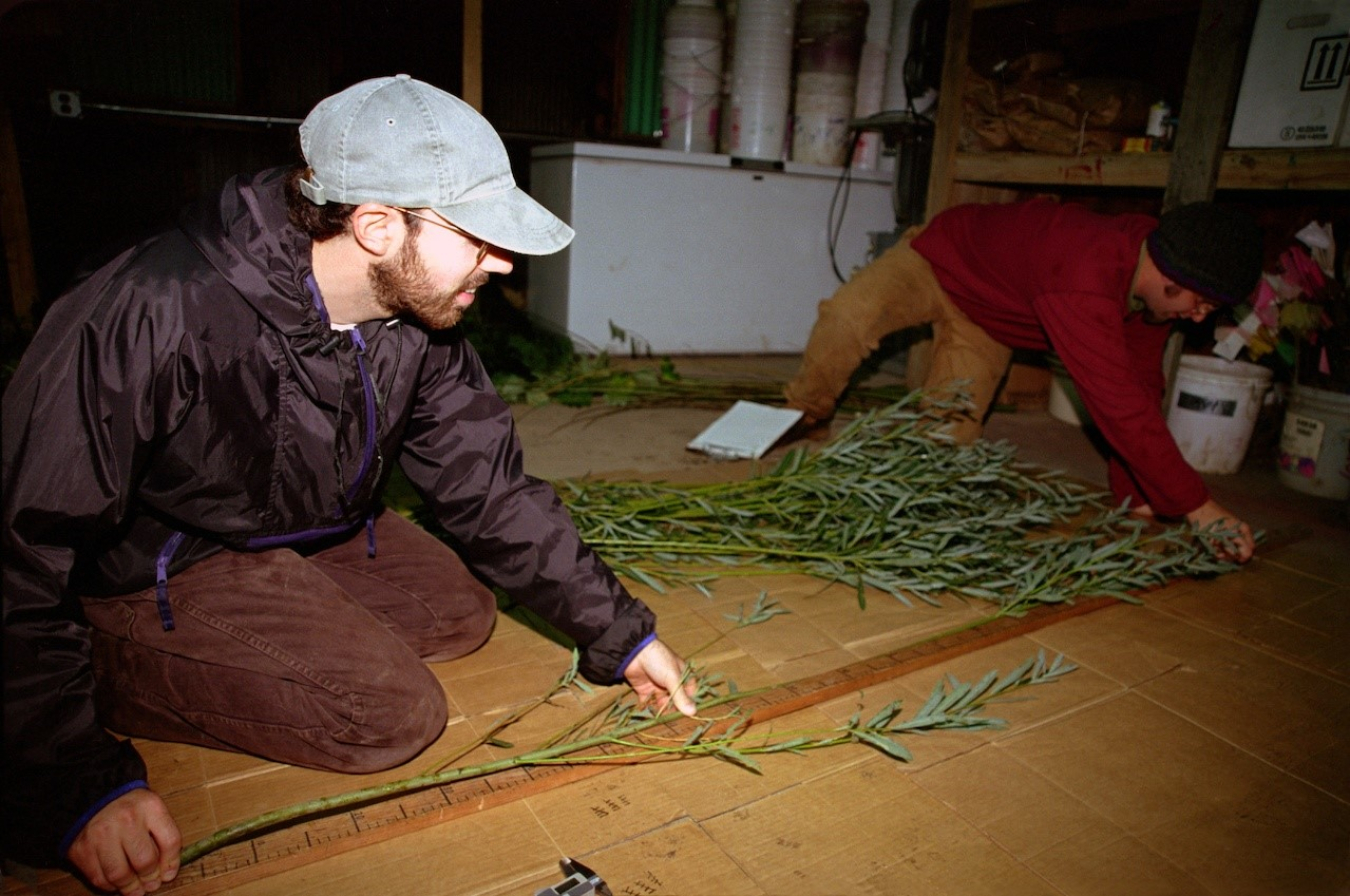
Photo Credit: Warren Gretz / National Renewable Energy Laboratory
The job of plant sciences technician is an entry-level position in bioenergy, in the agriculture, life, and physical sciences career sub-sector. Job seekers with agriculture, life, and physical sciences backgrounds or students studying science could consider this type of entry-level bioenergy job.
Plant sciences technicians work under the supervision of senior staff to conduct research on energy crop breeding, physiology, production, and yield. They also study different crop management techniques in order to discern the best ways to plant, harvest, and cultivate the plants as well as develop methods to control weeds and pests to keep crops disease-free. People in these positions may hold internships or entry-level jobs in bioenergy plant science.
Plant Sciences Technician
| Alternate Title(s) | Agronomist Technician; Botanist Technician; Crop Scientist Trainee; Plant Geneticist Trainee; Plant Pathologist Trainee |
| Education & Training Level Description | Bachelor’s degree in Plant Science, Plant Breeding, Biotechnology, Plant Pathology, Agronomy, Agricultural Engineering, Crop Science, Entomology, Genetics, Soil Science, Biology, or a related field. |
| Experience | 0-3 years |
| Job Skills |
|
| Job Profile | The United States has the potential to sustainably produce over 1 billion tons of biomass annually for renewable fuels, power, and products. Much of this biomass will come from dedicated energy crops—non-food crops that can be grown on land not suitable for traditional crops, specifically to provide biomass—and other agricultural resources. Improvements in crop yield and productivity, as well as reductions in fertilizer and pesticide requirements will help the industry realize this vast potential. With knowledge of biology, genetics, entomology, and soil science, plant scientists are uniquely qualified to help develop and enhance bioenergy crop systems, while protecting the nation’s natural resources. Plant scientists conduct research on energy crop breeding, physiology, production, and yield. They also study different crop management techniques in order to discern the best ways to plant, harvest, and cultivate the plants as well as develop methods to control weeds and pests to keep crops disease-free. Their ultimate goal is to work scientifically to produce the finest crops for use in bioenergy production systems, on a consistent basis. At the entry level, candidates work under the direction of senior technical staff to improve the productivity of bioenergy cropping systems. A Bachelor’s degree in plant science, plant breeding, biotechnology, plant pathology, agronomy, agricultural engineering, crop science, entomology, genetics, soil science, biology, or a related field is preferred. Equivalent experience or training may substitute for the degree. Employers also value relevant experience gained through undergraduate capstone research projects, part-time employment, internships, or volunteer work. A good foundational understanding of the physical and chemical sciences is recommended, as well as solid quantitative skills. |
More Entry-Level Agriculture, Life, and Physical Sciences Jobs in Bioenergy
Related Bioenergy Career Resources
Bioenergy Career Exploration Wheel

